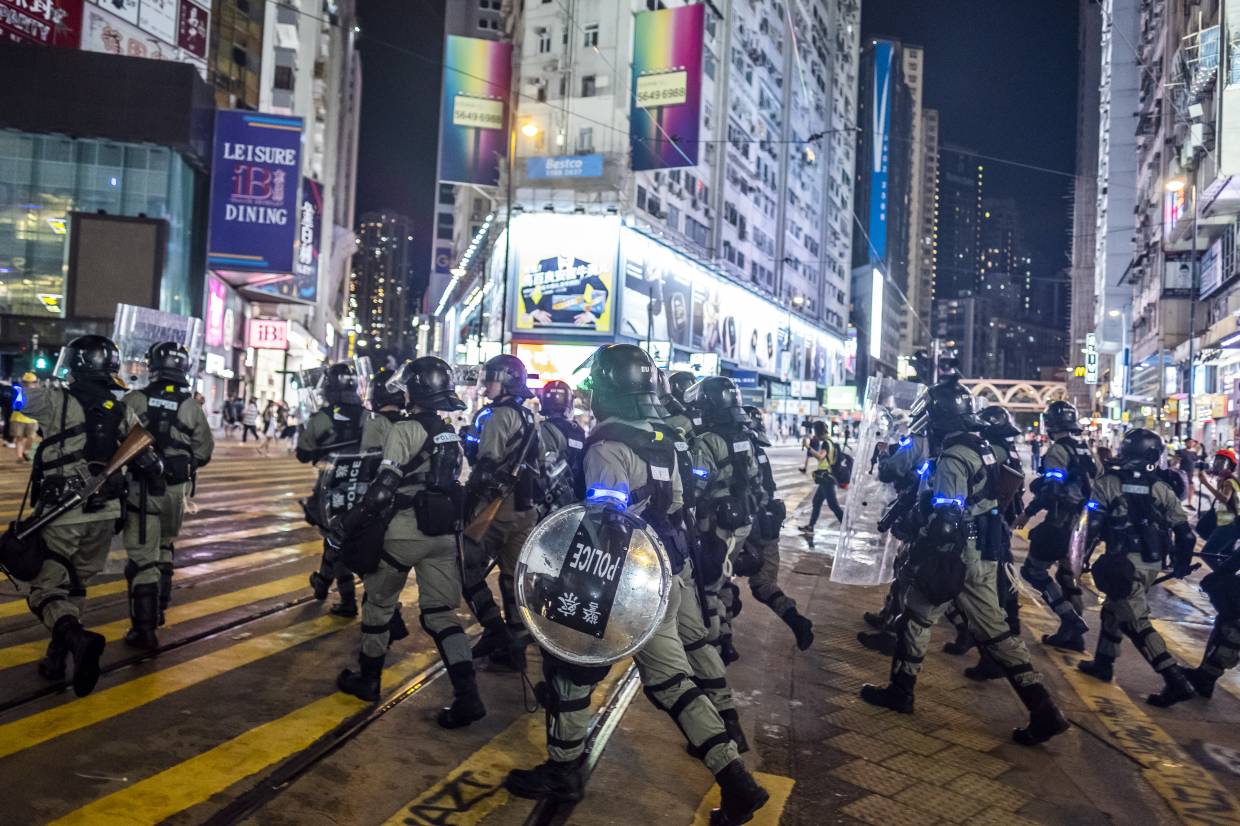Hong Kong is sinking ever deeper into the abyss. Riots have been flaring up everywhere. Traffic arteries are being barricaded. The economic heart of the city, the Central district, is being paralysed on a daily basis now. Violence is further on the rise, between the police and rioters, between the police and civilians who are sympathetic to the rioters, and particularly increasing between the rioters and what may still be deemed the so far silent majority of the population.
Being around in Central during the day and watching the images on live TV at night makes everybody’s heart burn. Even worse, we have come to a point where on occasions it feels like all it takes is one sparkle for a civil war-like scenario to be triggered. Society here is deeply divided. Social norms have been broken, human decency is on the decline, and respect for the elders evaporating. One wonders how this fast-emerging rift can ever be healed and the city return to a more normalised state again.
This week a friend of mine shared this
video of notorious interviewer Tim Sebastian talking to democracy activist and HK student leader Joey Siu on the show Conflict Zone aired by Deutsche Welle. I can only urge everyone with some interest in HK to watch it. To be fair, it needs to be said here that Siu was no match for Sebastian rhetorically, and he skilfully drew her into all sorts of contradictions. But even discounting for this imbalance I believe it gives the viewer a good sense of where the issues lie.
It may be important to point out a few of them. One, Siu conceded that nobody is representing the movement, that it was a leaderless movement, and hence nobody could actually sit down with the government to negotiate and make compromises, ie there are no grounds for any political resolution of the problem. She also conceded that the government had in fact offered private meetings with student leaders, which were spurned but as Sebastian rightfully points out could have been a start at least.
Instead, she called for a public dialogue with as many stakeholders as possible included but gave no clue how such dialogue should be facilitated. In modern democracies, there is no problem communicating with the public. There are free elections that take care of that issue, maybe not always to the satisfaction of everybody, but people have a voice. Hong Kong, however, is part of China, and universal suffrage and city-wide elections are an illusion, however much as they may be part of the demands.
Confronted with the rioters’ violent behaviour against civilians who think differently, attacking and sending people to hospitals in critical conditions, Siu found herself in a pickle saying that this would not be ideal. She refused to condemn the action, trying to be compliant with the movement’s mantra of not condemning each other and their actions in public. Clearly, Sebastian moved in there accusing her that she had no principles on inhumane treatments. It was hard for her to crawl back out from that hole.
There was Sebastian’s point about the movement having no plan beyond rioting. Even Siu herself, he contended, was merely a passenger rather than a spokesperson. All she could offer was that there were conversations about what Hong Kong’s identity should be post-2047. But she of all people must know that the Basic Law will cease to exist that year and the only way to extend a sort of one-country-two-systems is by convincing Beijing that it actually works, ie exactly the opposite of what is happening now.
And then, there is what Beijing itself wants, as there always is. I have offered an opinion several times in this space, namely that China actually and contrary to much of the mainstream media reporting wants and needs the two-systems and has every interest in protecting and probably prolonging it beyond 2047. Beijing has so far been restrained and left it to Hong Kong to try to sort through its troubles, much like it is the other system and as long as mainland Chinese aren’t becoming victims, so be it.
At the same time, Beijing knows perfectly well that there is no upside for China to get involved prematurely, if at all. Washington must already be lurking to move in for the kill and make Hong Kong the official pressure point in the US-China conflict. Also, Beijing is smart enough to understand the you-touch-it-you-own-it principle. In case of an intervention, this burning city will truly land in China’s lap and literally be its problem from one day to the next.
So, here we are, not knowing what comes next. There is a sense that we are close to an end game, but no one really has any idea what that is and what it means. I am glad that people like Tim Sebastian take it on themselves to provide perspective to the rest of the world.
